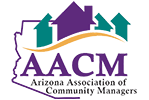Bacteria can be very helpful and very harmful to the environment. Harmful bacteria—such as Erwinia—can damage a tree beyond repair, which is a huge detriment to the planet. If your trees have odd growths or discolorations, the following harmful bacteria could be affecting them.
Crown Gall
Agrobacterium tumefaciens is a soil-borne bacterium that can affect a diverse number of tree and plant species. This bacterium enters a tree through wounds found on the trunk or roots. The name crown gall comes from the galls, or growths, that occur on the root crown, which is where the roots and stem meet. The Arizona trees often affected by this bacterium include willows, pecans, cottonwood, and nectarines.
Oleander Gall
The bacterium Pseudomonas syringae greatly affects oleander trees and shrubs. Galls are growths that appear on flowers, seedpods, and entire branches. This bacterium infects oleanders through the scars or wounds produced by improper pruning as well as frost injuries and natural openings. When your landscaper prunes your oleanders, ensure the tools are disinfected to prevent the spread of the bacteria.
Fire Blight
Fire blight is one of the oldest known plant diseases. It is caused by Erwinia amylovora, a bacterium that can also cause necrosis in saguaros and wetwood in trees. Fire blight does not occur in the desert as often as other diseases, but it shows up in times of high humidity. Fire blight symptoms usually appear when trees begin blooming. Pear and apple trees are the most susceptible, and affected leaves and blooms will shrivel and turn brown or black.
Wetwood
Wetwood, which presents with water-soaked and discolored trunks, is caused by a number of bacteria. This condition is not well-known, and there are no preventative techniques. You can only perform proper tree care and have your landscaper remove any affected limbs.
Keep your trees and landscape healthy with the help of Complete Landscaping. We are based in Tucson, so we have the experience and knowledge to identify and treat your diseased trees. Please call us at (520) 323-8918 to schedule an appointment.
